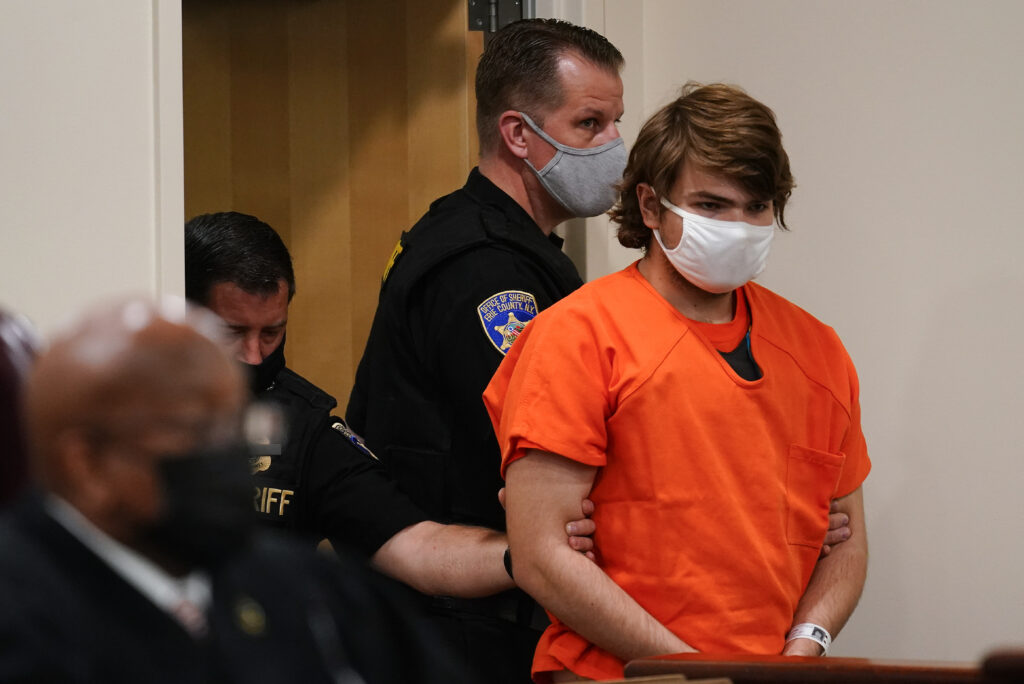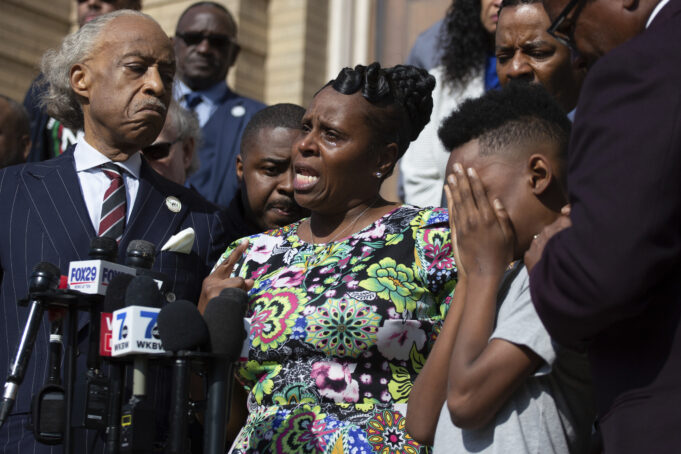“What’s next?” and similar questions are much of what remains in a stunned Buffalo, New York, after an 18-year-old alleged White nationalist terrorist, stormed an Eastside supermarket clad in body armor and firing a modified Bushmaster XM-15 rifle, killing at least 10 people and wounding three.
Within one week of his May 14 bloody rampage, family, friends and others of goodwill expressed intense concern not only toward the dead and wounded, but also for the future of their western New York community and their place within it.
“The climate here is one of pain, hurt, (and) confusion, it is also like a wake-up call as well, so there’s a lot of mixed feelings and emotions,” said Student Minister Dahveed Muhammad, the Nation of Islam representative in Buffalo and Muhammad Mosque No. 23. “So, what’s happening now is a lot of mobilization. There’s a lot of outreach. People are trying to find ways that they can be a part of a solution, giving away food, services and there’s (a lot) of outpouring of support for the families.”
Buffalo is the second largest city in the State of New York and highly segregated, according to Black residents. They also said the city’s Eastside is a food desert and that Tops Supermarket, the gunman’s chosen target for his campaign of mass murder, is the only major grocery store serving the city’s predominantly Black community.
“People are angry about these issues that have been coming to a boiling point, and people are angry with politicians and leaders for what they see as a failure to address the problem of racism and the problem of guns,” Student Minister Muhammad said. “If you don’t have transportation then you’re in trouble. So right now they’re providing shuttle service to people who depended on that supermarket for their groceries and their prescriptions,” he said. The shuttles go to the chain’s multiple suburban locations. “There are agencies that are giving away food right now, but I think we need to be able to supply our own on an ongoing basis.”
Lifelong Buffalo resident Duncan Kirkwood, a veteran and a former lieutenant in the Army National Guard, serves his community today as an advocate and motivational speaker. He told The Final Call he became aware of the gunmen’s attack through social media shortly after it occurred, and then after watching coverage of the shootings on a local news channel.
“I was upset, shocked, heartbroken, angry and frustrated, a full gambit of emotions, and I was trying to process what was going on, searching for more information,” Mr. Kirkwood explained, saying he had more questions than answers in the attack’s aftermath. “The first initial shock was jarring and I think the city had those (same) feelings of being wounded by having something like this happen.”
Mr. Kirkwood said as a human being, the shootings were horrific and terrifying, but as a Black man, they were neither surprising nor unexpected given the social and political climate in the country today. “This type of hatred has existed since we first got to this country,” he said of the relationship between the descendants of enslaved Africans and White people. “For hundreds of years, we’ve been systematically attacked and hunted by people who, for whatever reason, just hate us for existing. As a veteran, it leaves me wondering, what can we do with a terrorist wearing ¾-inch body armor?”

Savagery, dissatisfaction and confusion
Henri Star Muhammad, also born and raised in Buffalo, is a member of Muhammad Mosque No. 23, a concert violist and head of the city’s Muhammad’s School of Music. He knew many of the victims and said alleged mass murderer Payton S. Gendron affected him deeply. He had relationships with many of the victims and survivors.
“When I heard of the incident, I had a feeling I would have personal connections with almost everyone involved and that turned out to be the case,” Henri Muhammad said, describing close friends who were either witnesses or among the deceased. “I had one parent of Muhammad School of Music and her daughter who were in the store and working there when the shooting went off and they hid and made it out safely.”
Henri Muhammad added that one of his music school’s longtime donors and supporters, Kat Massey, was among those killed. He still had her letter of support sitting on his desk.
“When I heard her named as one of the victims, it’s almost surreal, for something like that and there are other stories. One of the schools where I’m on the faculty, where I teach violin, the school’s secretary, her father was the brother police officer who tried to take down the attacker and was killed in return fire,” he said. “The pharmacist in the store, who was the cousin of one of my violin class and music colleagues, who played with me on the Stevie Wonder Tour in the orchestra, was struck and survived, and even though she was grazed by the assault rifle. That’s luck to survive that.”
Willie Stewart, 69, a Buffalo resident, gun safety advocate, and member of the Dorie Miller Rifle and Pistol Club, told The Final Call how the death of his older brother, a Marine killed in Vietnam during a second tour of duty just before Christmas in 1967, along with the racism of being denied service in a South Carolina restaurant while traveling with his uncle, effected his thinking as a Black man. “That’s when it really hit me, on who I was dealing with in America,” Mr. Stewart explained.
“After that, I started joining different community organizations to let me know and to teach me about who I was as a Black man and started doing community action work since then. Some other brothers that I met decided to start a legal gun club and teach gun safety,” he said. “And after what happened the other day, we’ve gotten a lot of calls.”
Regarding the Tops Supermarket shootings, Mr. Stewart said he had just shopped there, leaving no more than 15 minutes before the terrorist attack began. “I had just spoken to the officer that was in there and me and another guy had went in to pick up some fresh fruit, and when I got back to the house, I had got a call that the shooting was going on.”
Samuel L. Radford III, a member of the Buffalo Local Action Committee initially set up during organizing for the 1995 Million Man March on Washington, said Buffalo is among the poorest cities in America. The Buffalo native also called his hometown one of the most segregated cities in America when it came to equal access to land ownership, business loans and other means of wealth creation.
“If you look at the manifesto that was written by the guy who committed this atrocity, he said he chose Buffalo because it had the highest density of Black people and had the least amount of gun ownership,” Mr. Radford said of the alleged murderer’s writings.
“When the shooting occurred, I had just finished a workshop I was doing for the Childcare Action Team, for a group of day care owners, on how to overcome burn out and effective communication, and as I walked out the door, the shooting took place just two blocks from where I was doing the workshops. A guy drove by saying ‘there is a shooting going on up there!’ There’s somebody with an automatic weapon shooting!” he recalled.
Stating that disaster preparedness is part of the overall solution during times of hardship and crisis, Student Minister Dahveed Muhammad believes training offered by Mosque No. 23 offers lessons in acquiring food, clothing and shelter by working in a collective manner, and through valuable mental and spiritual tools to understand the time and what must be done.
“We need to like never before, pool our resources, put our money together, put our resources together and as organizations in the city of Buffalo, utilizing the Ministry of Agriculture, to get more supplies, more goods, and to store it up and to be prepared for the day of want that’s coming,” Student Minister Muhammad said.













